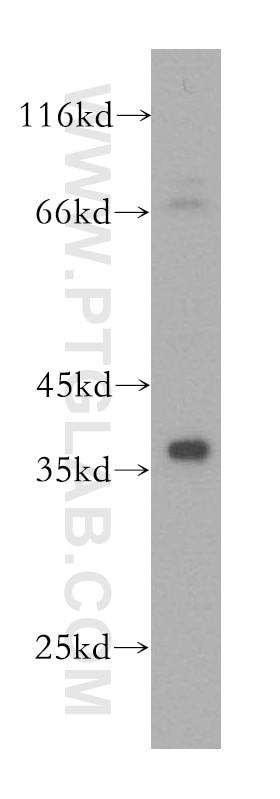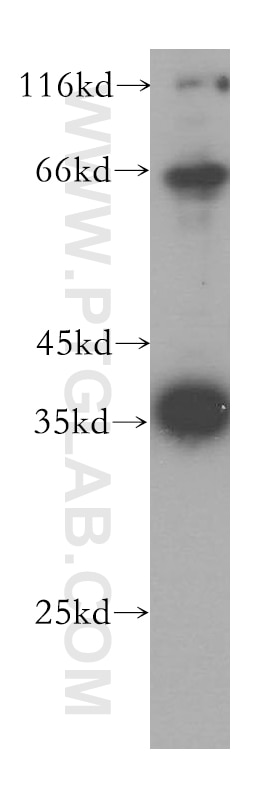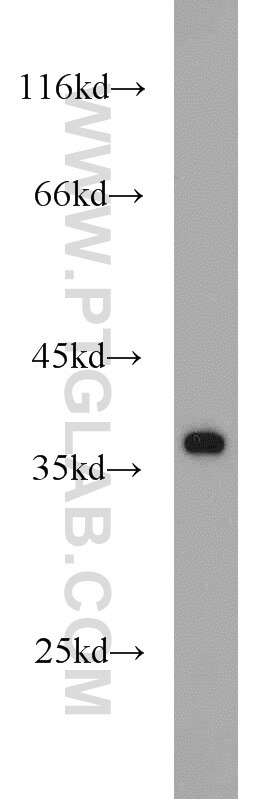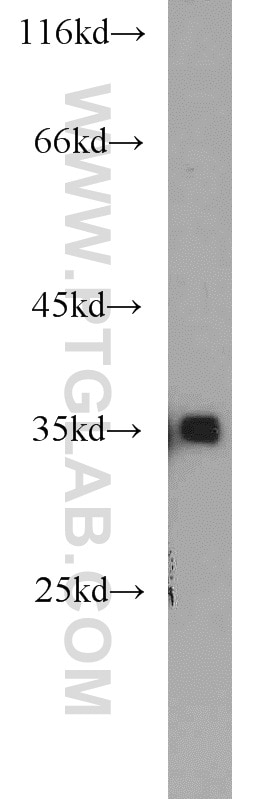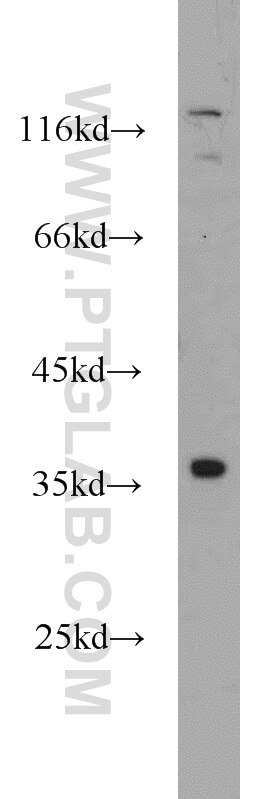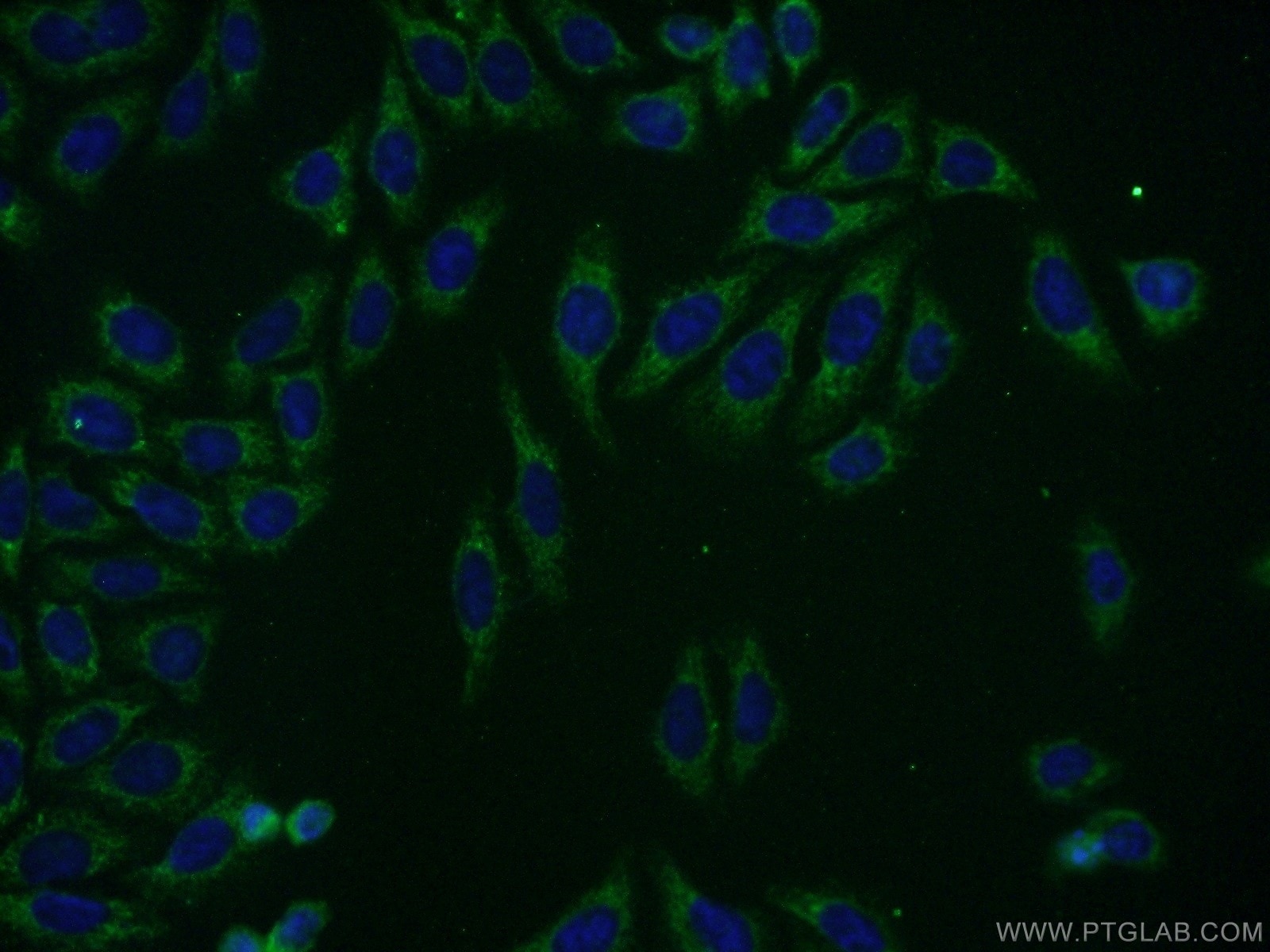KLHL14 Polyklonaler Antikörper
KLHL14 Polyklonal Antikörper für IF, WB, ELISA
Wirt / Isotyp
Kaninchen / IgG
Getestete Reaktivität
human, Maus, Ratte
Anwendung
WB, IF, ELISA
Konjugation
Unkonjugiert
Kat-Nr. : 16693-1-AP
Synonyme
Galerie der Validierungsdaten
Geprüfte Anwendungen
| Erfolgreiche Detektion in WB | PC-3-Zellen, HepG2-Zellen, MCF-7-Zellen |
| Erfolgreiche Detektion in IF | HepG2-Zellen |
Empfohlene Verdünnung
| Anwendung | Verdünnung |
|---|---|
| Western Blot (WB) | WB : 1:1000-1:4000 |
| Immunfluoreszenz (IF) | IF : 1:20-1:200 |
| It is recommended that this reagent should be titrated in each testing system to obtain optimal results. | |
| Sample-dependent, check data in validation data gallery | |
Produktinformation
16693-1-AP bindet in WB, IF, ELISA KLHL14 und zeigt Reaktivität mit human, Maus, Ratten
| Getestete Reaktivität | human, Maus, Ratte |
| Wirt / Isotyp | Kaninchen / IgG |
| Klonalität | Polyklonal |
| Typ | Antikörper |
| Immunogen | KLHL14 fusion protein Ag10065 |
| Vollständiger Name | kelch-like 14 (Drosophila) |
| Berechnetes Molekulargewicht | 44 kDa, 71 kDa |
| Beobachtetes Molekulargewicht | 35 kDa, 70 kDa |
| GenBank-Zugangsnummer | BC021267 |
| Gene symbol | KLHL14 |
| Gene ID (NCBI) | 57565 |
| Konjugation | Unkonjugiert |
| Form | Liquid |
| Reinigungsmethode | Antigen-Affinitätsreinigung |
| Lagerungspuffer | PBS mit 0.02% Natriumazid und 50% Glycerin pH 7.3. |
| Lagerungsbedingungen | Bei -20°C lagern. Nach dem Versand ein Jahr lang stabil Aliquotieren ist bei -20oC Lagerung nicht notwendig. 20ul Größen enthalten 0,1% BSA. |
Hintergrundinformationen
Kelch-like protein 14 (KLHL14) is a member of the KLHL family. The kelch motif was initially discovered in Kelch. In this protein there are six copies of the motif. It has been shown for one member that it is related to Galactose Oxidase for which a structure has been solved. Two isoforms of this protein exist - 70kDa and 43kDa.
Protokolle
| Produktspezifische Protokolle | |
|---|---|
| WB protocol for KLHL14 antibody 16693-1-AP | Protokoll herunterladen |
| IF protocol for KLHL14 antibody 16693-1-AP | Protokoll herunterladen |
| Standard-Protokolle | |
|---|---|
| Klicken Sie hier, um unsere Standardprotokolle anzuzeigen |
